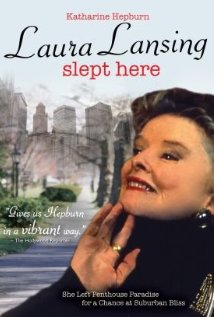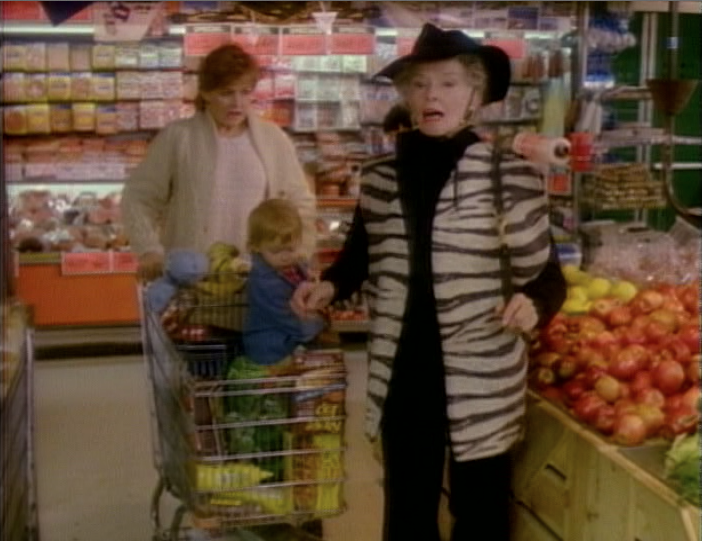A Year with Kate: Laura Lansing Slept Here (1988)
 Wednesday, November 26, 2014 at 3:00PM
Wednesday, November 26, 2014 at 3:00PM Episode 48 of 52: In which Katharine Hepburn makes a truly awful houseguest.
 Stars! They’re just like us! Except that they aren’t. An entire media industry has been built around bringing our cultural idols closer to us--Twitter alone delivers the illusion of intimacy 140 characters at a time--but at the end of the day, would you actually want to live with one? When George S. Kaufman had to host Radio Personality and Famous Critic Alexander Woollcott for a week, the experience was so aggravating that the playwright and his partner Moss Hart wrote a scathingly funny satire about Woollcott called The Man Who Came To Dinner. I bring this up for two reasons: 1) It’s a great Christmas comedy starring Bette Davis so go watch it right now if you haven’t and 2) This seems to have been more or less James Prideaux’s motivation when he wrote Laura Lansing Slept Here. If Prideaux is to be believed, Katharine Hepburn was witty, charming, and a gigantic pain in the ass.
Stars! They’re just like us! Except that they aren’t. An entire media industry has been built around bringing our cultural idols closer to us--Twitter alone delivers the illusion of intimacy 140 characters at a time--but at the end of the day, would you actually want to live with one? When George S. Kaufman had to host Radio Personality and Famous Critic Alexander Woollcott for a week, the experience was so aggravating that the playwright and his partner Moss Hart wrote a scathingly funny satire about Woollcott called The Man Who Came To Dinner. I bring this up for two reasons: 1) It’s a great Christmas comedy starring Bette Davis so go watch it right now if you haven’t and 2) This seems to have been more or less James Prideaux’s motivation when he wrote Laura Lansing Slept Here. If Prideaux is to be believed, Katharine Hepburn was witty, charming, and a gigantic pain in the ass.
Kate has played a lot of characters inspired by or based on her in some way, but Laura Lansing may be the most bluntly biographical since Tracy Lord. Laura is no actress, but a different kind of star: a celebrated author with a decades-long career. As Laura’s agent explains in a convenient bit of exposition:
“You were a sensation in your 20s, a household name in your 40s, an institution in your 60s, and now…"
Sound like anyone we know? Now Laura’s publisher is dropping her because she’s too out of touch, living in her NYC penthouse and only emerging for interviews. Laura’s agent begs her to retire, but she brushes off his suggestion with the typical Hepburn handwave. Instead, Laura makes a wager with him, the point of which can only be to move the plot forward: She will stay with an “average” family in Long Island for a week. If she flees back to the city, she must give up writing. Laura appears on the doorstep of an overworked accountant and his stay-at-home wife and immediately starts making demands. The results--to nobody’s surprise but Laura’s--are a disaster.










